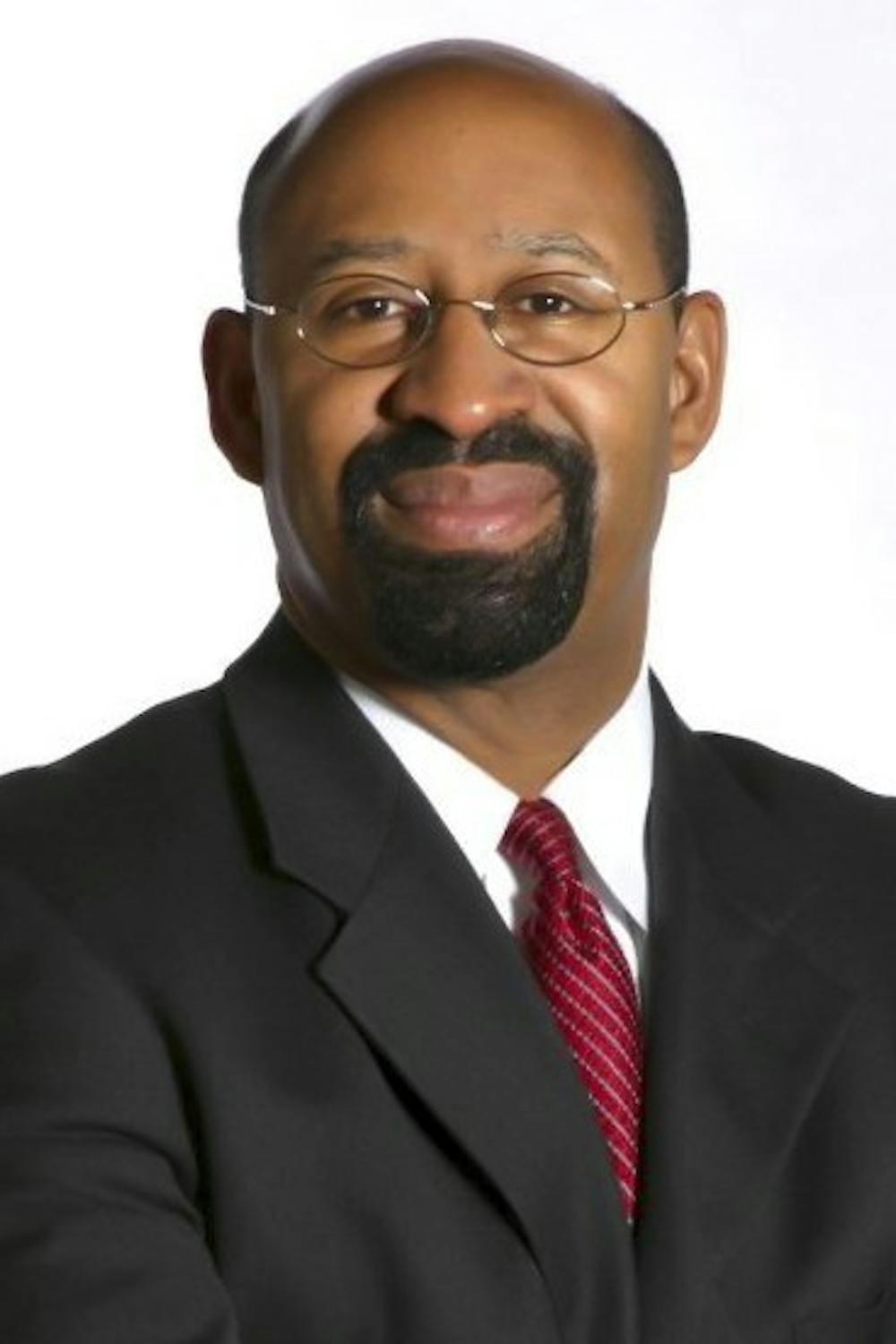Since his term as Philadelphia’s 98th mayor ended in January, Michael Nutter has had no lack of job opportunities.
The 1979 Wharton graduate’s latest job offer is at the University of Chicago. As a fellow at the UChicago Institute of Politics, he will teach a week-long seminar series during the upcoming spring quarter. Unlike Penn, UChicago is on the quarter system. At IOP, he will focus on how crisis management can upend a mayoralty, the challenges of institutionalizing changes after an election and how the 2016 presidential election will affect America’s big cities.
Marc Meredith, professor in the Penn department of political science, said he is not surprised Nutter is a popular commodity on the academic circuit because of his strong record as mayor.
“He was seen as having a very successful tenure as mayor here,” Meredith said. “I think he is seen as being very policy knowledgeable and I think universities try to attract people with real world experiences.
He will also work as a senior fellow for What Works Cities, a data-driven program funded by former New York City Mayor Michael Bloomberg with the goal of making government more effective and increasing community engagement. Since leaving office, Nutter has already been a CNN commentator, urban policy professor at Columbia University and a U.S. Department of Homeland Security advisor.
As Mayor of Philadelphia, Nutter reduced murder rates to their lowest point since the 1960s, and was able to grow the city’s population for the first time in 57 years, thanks to an influx of immigrants and highly educated millennials.
Nutter was also able to guide the city through the worst economy in recent history, but not without receiving some criticism. While some neighborhoods saw increased development and prosperity, other neighborhoods experienced creeping poverty and stagnant economic prosperity.
His management of the recession also made him enemies with unions, especially the Philadelphia Federation of Teachers, which had health care cut out of their contracts in 2014. During his mayoralty, Nutter also alienated business leaders who had hoped the crisis would lead to a slimmed-down City Hall bureaucracy, and had a strained relationship with former colleagues at City Council.
Nutter has been thought of highly outside of Philadelphia, receiving compliments from President Barack Obama and Bloomberg. In 2014, Nutter was named one of Governing magazine’s “Public Officials of the Year.”
In Philadelphia, citizens still hold mixed feelings toward Nutter. One of his most controversial ideas was to close some of the city’s libraries during the recession.
In March 2015, Michael Nutter’s approval rating stood at 52 percent, according to the Pew Charitable Trusts. However, his approval rating among black Philadelphians was only 30 percent.
Meredith said the fact that Philadelphians are more liberal than Nutter’s policies is one explanation of the disparity between Nutter’s public approval ratings and his respectable reputation.
“In Philadelphia, almost everyone calls themselves Democrats, but as Democrats go in Philadelphia, Nutter is certainly more on the conservative side than [current Mayor Jim Kenney],” Meredith said. “A lot of it probably is a reaction to the fact that he governed more from the right than the median voter in Philadelphia would have preferred.”
Nutter was born in West Philadelphia, earned his undergraduate degree from Wharton and was the councilman for the fourth district for 15 years. Now, all of his job prospects have taken him out of the city.
However, Meredith would not be shocked if he came back to Philadelphia for a career in statewide politics in Pennsylvania or as an instructor at Penn.
“It seems like if the right job opportunity arose at a place like Penn, I could see him coming here,” Meredith said. “But at universities, the situation is more of a ‘right place, right time’ factor, so there just might not have been the position that was right for him this time around. And who knows what will come around in the future?”
The Daily Pennsylvanian is an independent, student-run newspaper. Please consider making a donation to support the coverage that shapes the University. Your generosity ensures a future of strong journalism at Penn.
DonatePlease note All comments are eligible for publication in The Daily Pennsylvanian.





